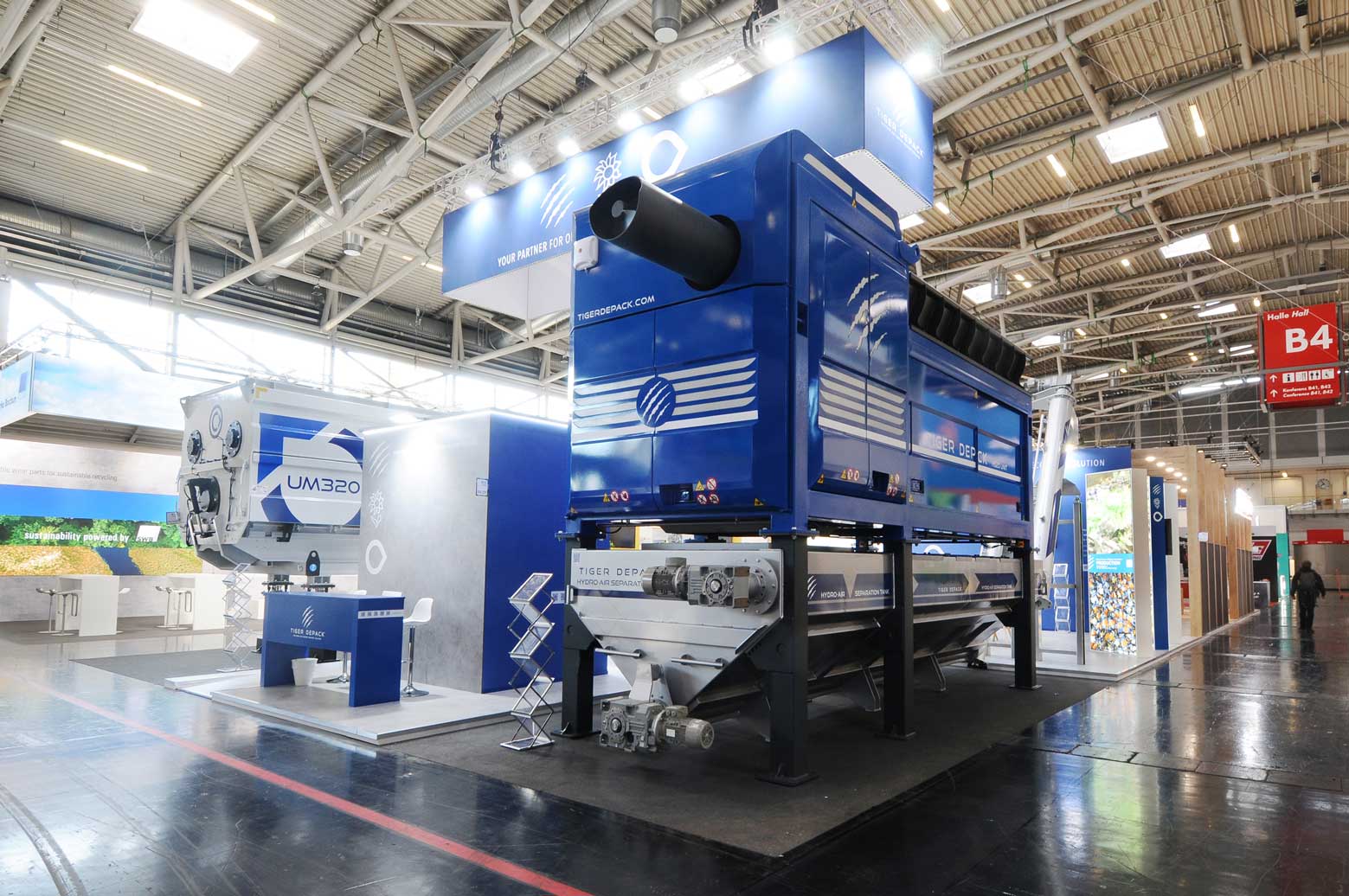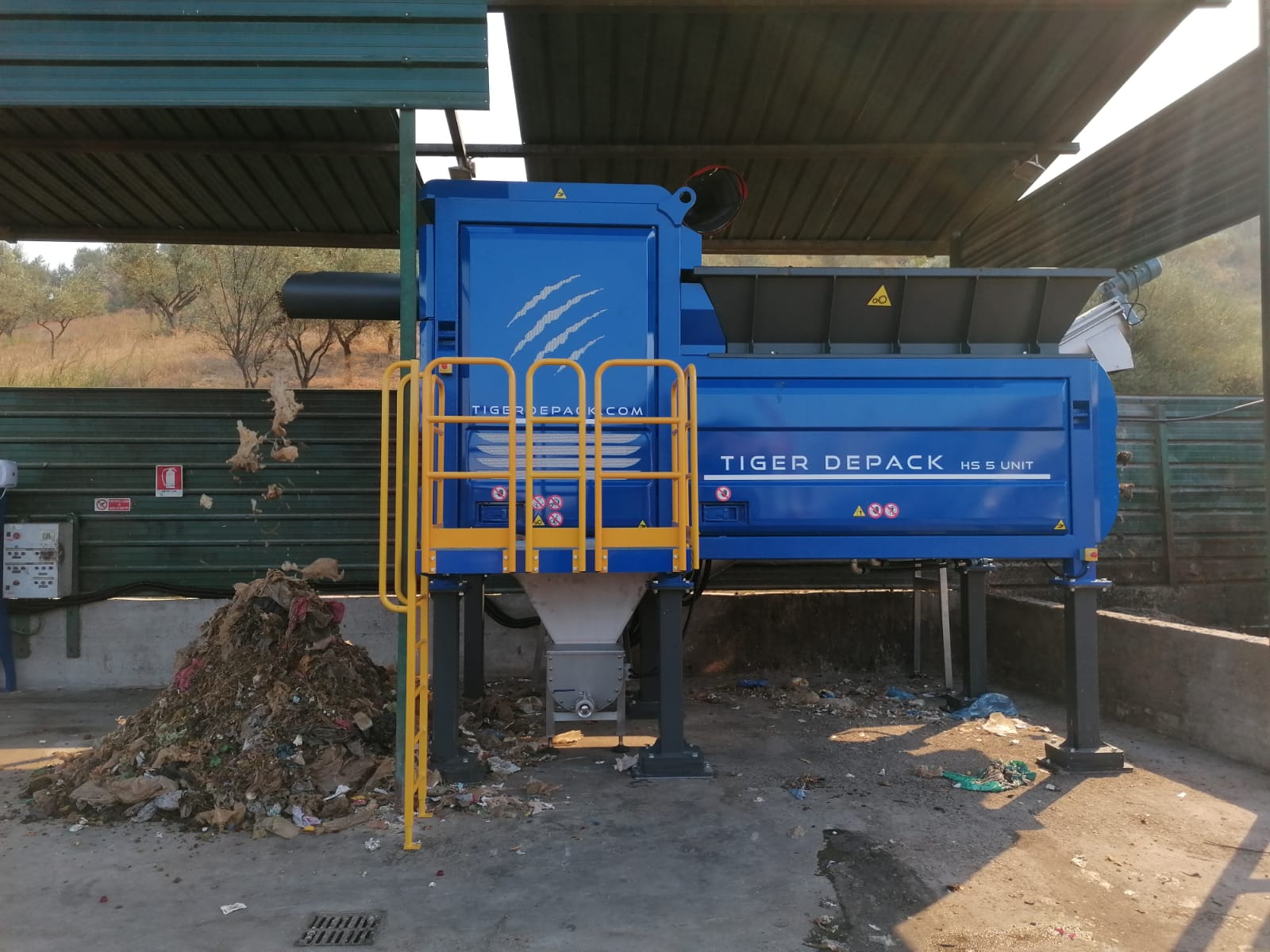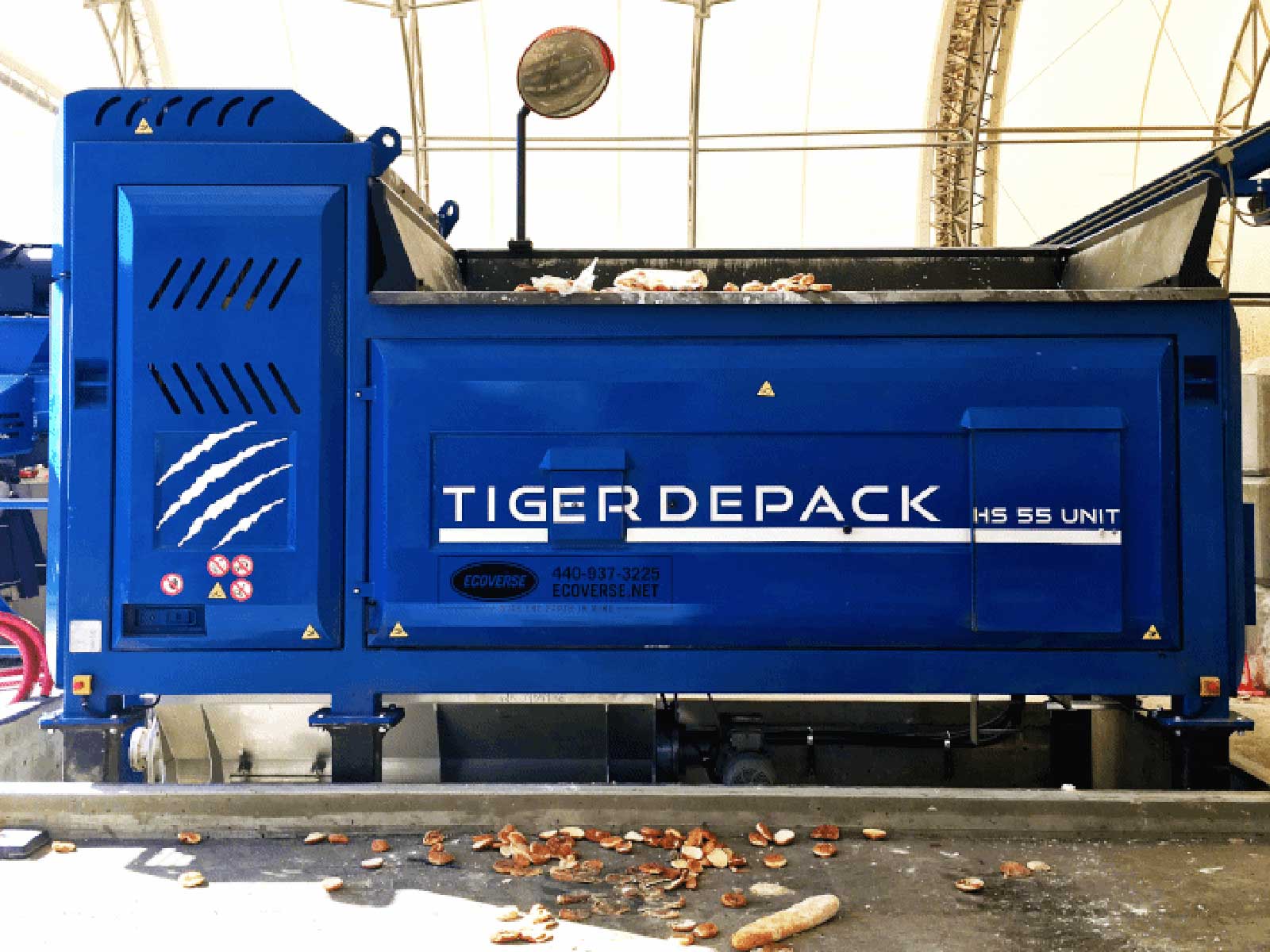The Santa Giustina paper mill, which celebrated its 50th anniversary in 2019, is one of the seven production plants of the RDM Group, within which it plays a fundamental role in terms of the quantities of cardboard produced each year. At the basis of the development are the continuous investments aimed at improving products and processes, such as the installation of the Tiger Depack PPS, which has made it possible to reduce the amount of waste material and to recover all the pulp still present in the pulper.
With its 250,000 tonnes of cardboard produced per year, its 265,000 tonnes of recycled fibre consumed annually and its 200 employees, to which must be added around fifty people in outsourcing plus the allied industries, the Santa Giustina (BL) paper mill is today an international reference point in the production of coated cardboard with a recycled base and virgin fibre.
The focus on sustainability.
Inaugurated in the village of the same name in Val Belluna in 1969 and moved here following the Vajont disaster, which had destroyed the Longarone plant, Santa Giustina has always been committed to developing a sustainable business model, capable of combining economic growth with the wellbeing of employees and respect for the environment. In the last 10 years, the company has benefited from a -30% reduction in water consumption, a -20% reduction in electricity consumption and a -20% reduction in CO2 emissions.
In addition to the efficient use of energy and water resources, the responsible management of waste and refuse also contributes to the achievement of objectives related to the increasing sustainability of the production process. And in this Santa Giustina represents an excellent example of circular economy, which has as its primary objective the regeneration of raw materials used in production processes. Just to give a few numbers: 273,000 t of pre-consumer production waste from industrial activities, 14,000 t of paper and cardboard packaging from selective collection (companies and offices), and 70,000 t of waste from urban collection.
Innovation as the basis for development.
For this, and not only this, technological modernisation has accompanied the paper mill’s entire activity over time. The last few years, in particular, have seen in 2014 the improvement of production, quality and safety with the complete rebuilding of the wet part of the paper machine, the replacement of the forming drums with forming cloths and the expansion of the water treatment plant; in 2017 the improvement of energy performance with the reduction of specific gas and electricity consumption; in 2018 a technological modernisation aimed at reducing waste, increasing safety and reducing reel handling. Finally, in 2019 an improvement in set-up automation.
‘From 2014 to today,’ says Massimo Marcer, plant manager since July 2019 and at the mill since 1999, ‘we have invested more than € 25 M in Santa Giustina to make the various areas of the mill more efficient. Starting from the wet end of the paper machine, from the end of the machine, to the set-up and up to the thermoelectric plant. Interventions that, with the implementation of more modern machinery, in addition to production and quality advantages also bring a major improvement in safety. The focus on the continuous evolution of the paper mill has allowed us to remain among the best coated board production plants in Europe. The focus on environmental sustainability is also leading us to analyse and intervene where possible with new technologies to reduce waste, reduce the use of energy resources, and reduce water consumption and emissions.
Innovation + sustainability: a virtuous example
At the first edition of the Miac-Assocarta Innovation Award, the prize created by Miac and Assocarta with the technical support of Aticelca aimed at rewarding paper mills that have introduced elements of innovation in their companies and products during the year 2019, Reno De Medici, with the project ‘Recovery of fibre from pulper waste for the production of recycled-based cardboard’, part of the category ‘Innovation for the circular economy’, presented one of its most recent technological investments, namely the installation of the new Tiger Depack PPS – Paper Pulp Solution (www. tigerdepack.com), an innovative machine manufactured by Cesaro Mac Import (www.cesaromacimport.com) and which, by exploiting a patented vertical centrifugal separation system, manages to reduce the amount of waste material and recover the entirety of the pulp still present in the pulper (see Paper Industry, June 2019, p. 50). A major innovation, which has brought the company significant economic, production and environmental sustainability benefits, acting as a virtuous example of a circular economy.
A prepared partner
‘The installation of the Tiger Depack HS20 PPS,’ explains Marcer, ‘started at the end of 2017 and continuous operation began in January 2018. From a plant engineering point of view, the installation did not require us to make any particular changes, as the machine was placed in a special area dedicated to the disposal of pulper waste. The manufacturer not only provided us with a machine already set up for our specific needs, but also immediately supported us in every aspect, making the installation quick and easy.
The machine comes with a plug-in system that allows installation in a variety of situations, even in small spaces, as it occupies only 21 m2 in its largest version and requires no other services other than electricity and water supply. An all-in-one solution, where the simplicity of the system allows installation even outdoors and the possibility of working around the clock.
‘We always support our customers in the optimal insertion of the machine within the existing production cycles and in the optimal start-up and set-up,’ explains Francesca Zantedeschi, marketing and communication manager of Cesaro Mac Import. ‘In fact, the characteristic of pulper is that it is extremely variable in its composition, so each paper mill can adapt its Tiger Depack to obtain the best result; and Cesaro Mac Import is an ideal and well-prepared partner for this phase.
Less waste and maximum pulp recovery
Santa Giustina produces four-layer coated cardboard and since, especially for the intermediate layer, a part of recycled fibre is used, such as city collection boxes, corrugated straw and other types of waste, the paper mill has included the Tiger Depack PPS in the centre’s line on the pulper washing and cleaning system. ‘In the city collection,’ explains Marcer, ‘there is always a part of impropriety, including plastic, and therefore the problem of plastic has always been present in our production cycle; before the Tiger’s insertion we treated it with a discontinuous cleaning system, and cyclically part of the plastic was discarded and fibre was obtained which went to the press; the remaining material, in our case, went to the internal dump. With the insertion of Tiger, after having prepared a report every 15 days and monthly, we have found a reduction in weight of discarded material of between 10 and 16% (specifically, we are talking about kg of pulper waste per tonne of cardboard produced); this figure should be considered in relation to the more than 800 tonnes per day of cardboard produced, we are therefore talking about very important quantities considering that the reduction of 10-16% per kg per tonne recovered is automatically transformed into fibre that is directly reintroduced into our cycle’.
Certainly important percentages, because we are talking not only about reduction but above all about recovery, and at the end of the year there are big mountains of plastic and fibre recovered.
‘Since we have managed to reduce the amount of plastic by weight per tonne produced, and above all we have also managed to recover part of the fibrous waste that used to remain attached to the plastic and end up directly in the internal landfill, the part of the fibre that is recovered downstream of the pulper always remains in the intermediate layer line of our centre. Logically, a small part will remain attached to the plastic, but the bulk is recovered. Also, by working with a drier and cleaner reject, the surrounding area has benefited in terms of organisation and cleanliness.
The plastic at the moment goes to the internal landfill, but we are working to see if it is possible to recover it and reuse it in another way, because it would be a big advantage for us as well, with environmental benefits for everyone’.
‘For paper mills with an external landfill, of course, there is the added advantage of reduced wheel trips as well as reduced disposal costs,’ adds Francesca Zantedeschi.
Cesaro Mac Import in its experimental plant in Eraclea is applying the Steinert technology of optical selection in order to optimise and obtain reusable matrices from pulper plastics, for an ever greater efficiency of the production cycles in a no-waste perspective’.
BOX1
The Reno de Medici Group
The RDM Group is Europe’s second-largest producer of recycled-based coated board and the largest in Italy, France and the Iberian Peninsula, but great importance within the product portfolio is also attached to the production of board made from virgin fiber. The Group is listed on the Star segment of Borsa Italiana S.p.A. and on the Madrid Stock Exchange; it has its headquarters in Milan but can boast a strategic presence internationally thanks to its seven production plants, three of which are in Italy, two in France, one in Germany and one in Spain, two cutting and processing centers, and a sales network active in 70 countries.
BOX2
Cesaro Mac Import
Cesaro Mac Import, a company based in Eraclea (VE) and owner of the Tiger Depack brand, has specialized for more than 30 years in the field of environmental technologies: from the supply of single machines to the design, installation and post-test assistance of integrated waste treatment plants. From this experience was born the Tiger system, a project aimed at improving the quality of organic waste to be sent to anaerobic digestion, reducing the presence of plastics. And a project with which the company brings its experience in the field of circular economy applied to the management of pulper waste from paper mills. In fact, the Tiger Depack machinery is able to process and solve in a circular economy perspective the age-old problem of paper mill pulper management. allowing to recover up to 98 percent of the paper fiber still present in the dry matrix. The dry material in addition to being very low in content can later be further processed with Steinert selectors that will make it possible to derive valorizable materials such as PET and Metals to be reinserted into the various production cycles.


